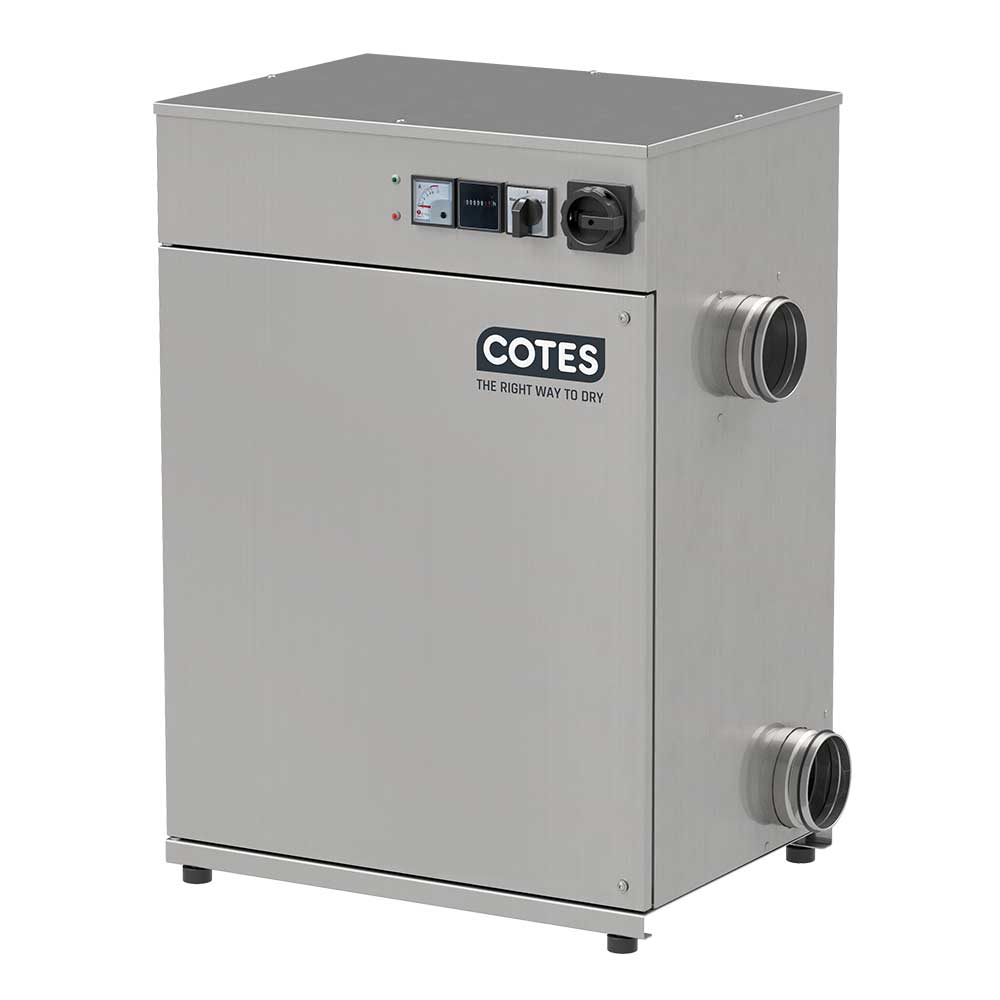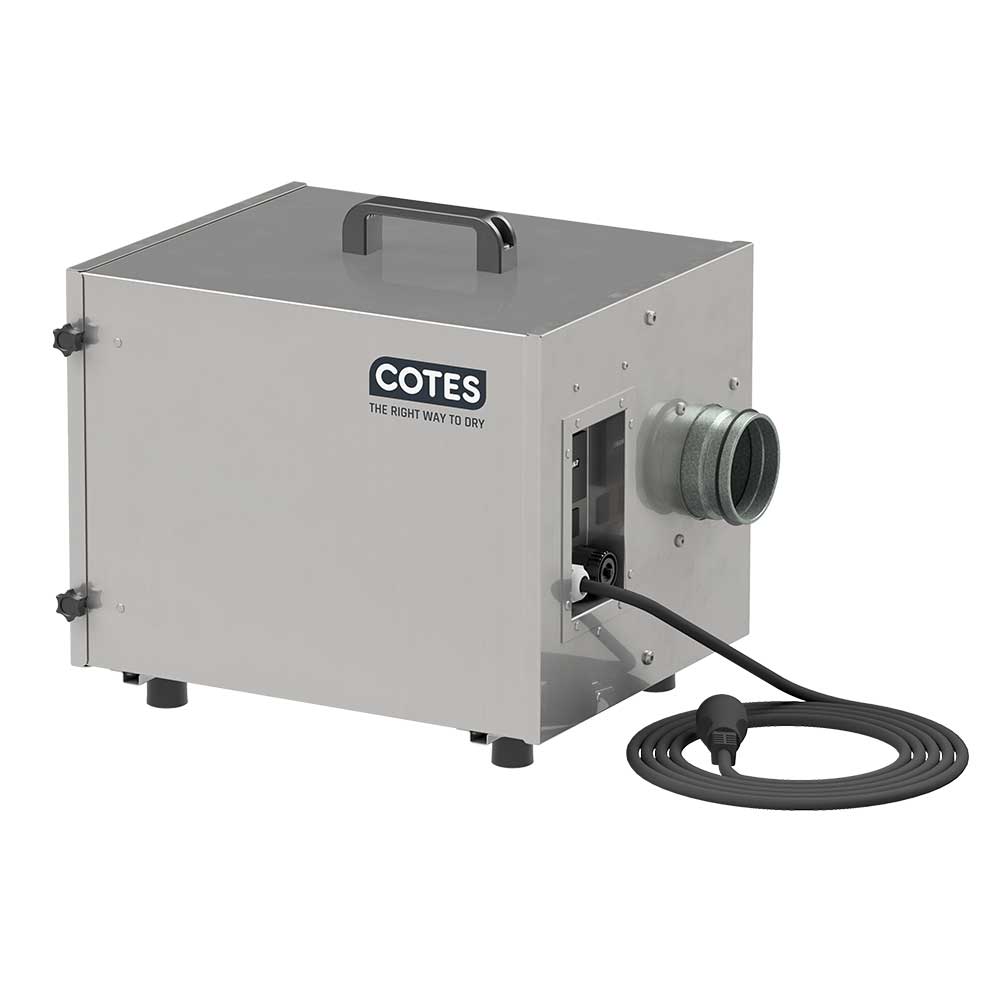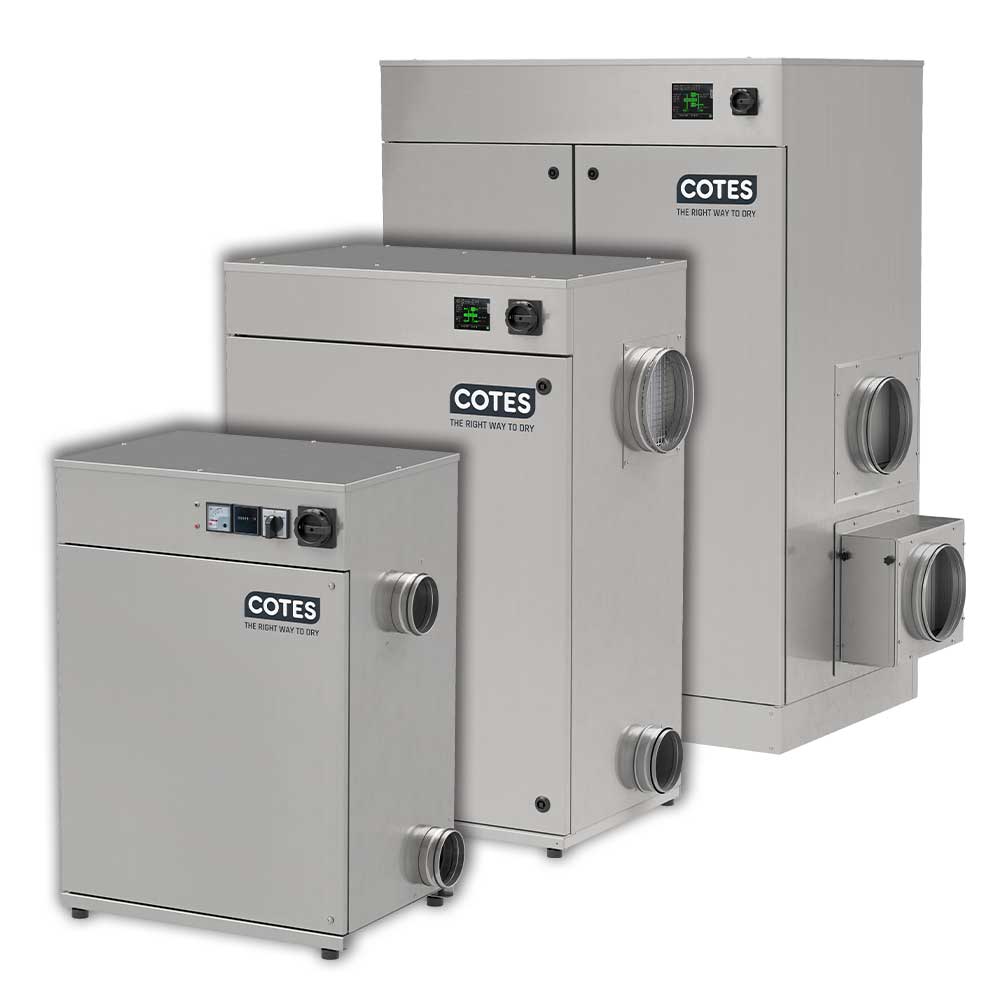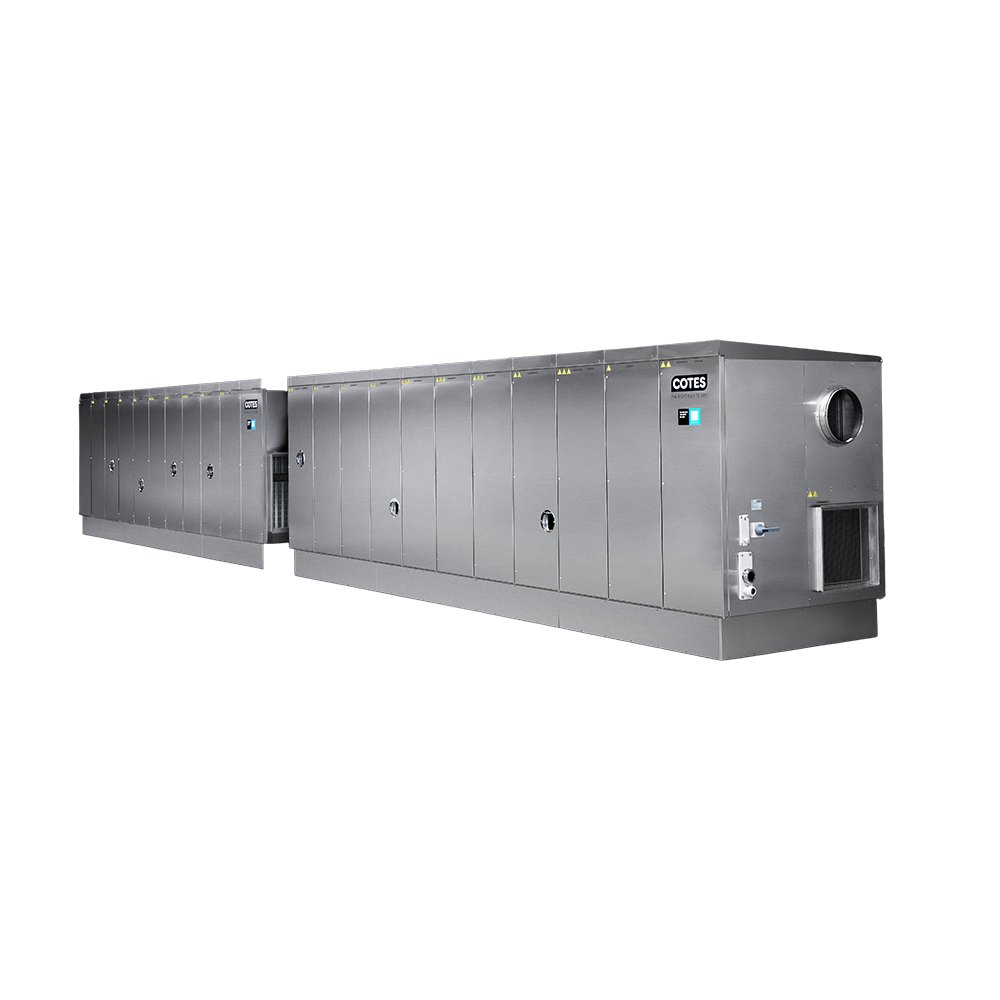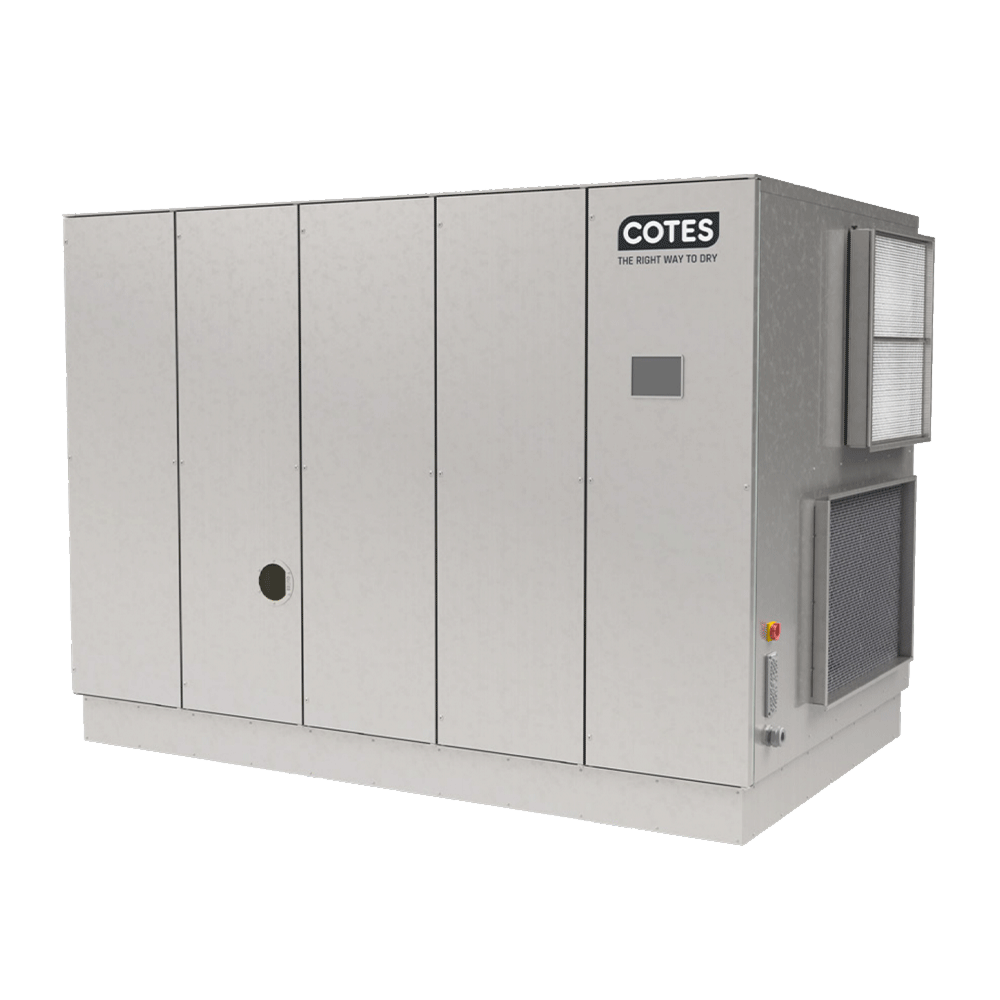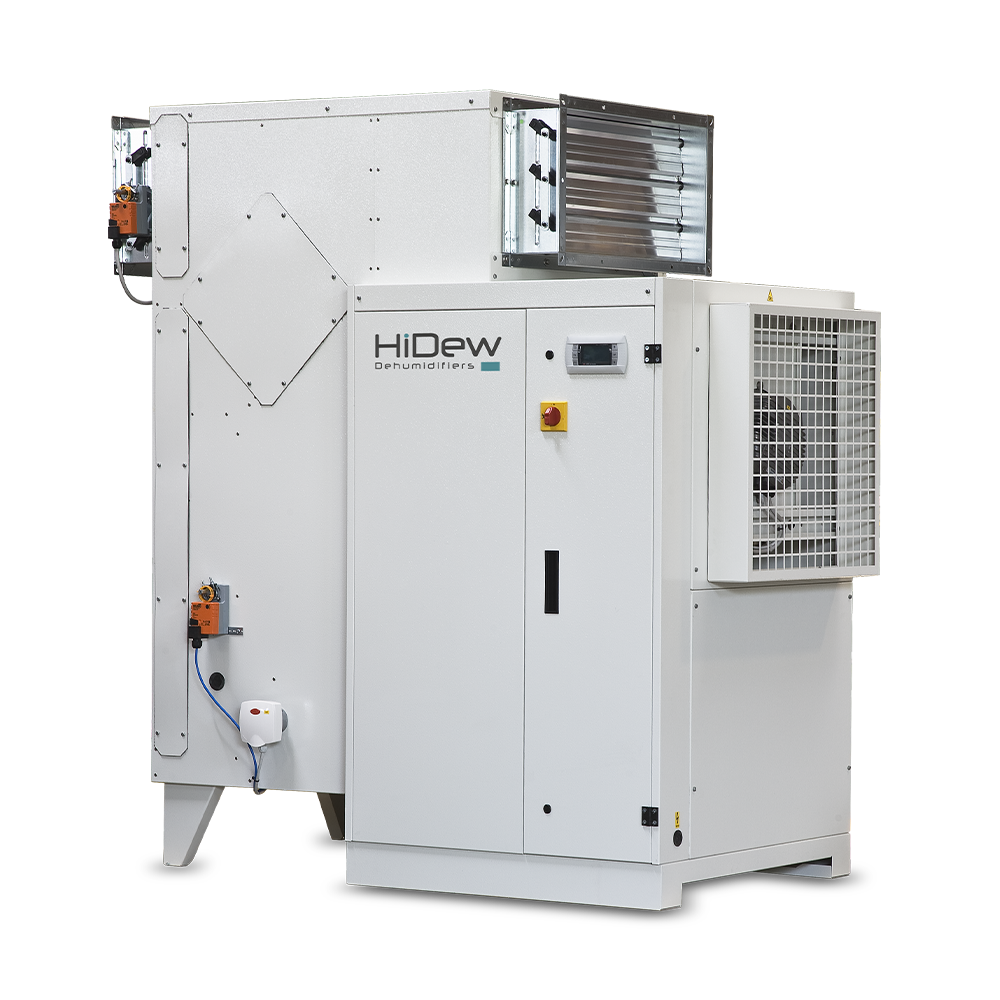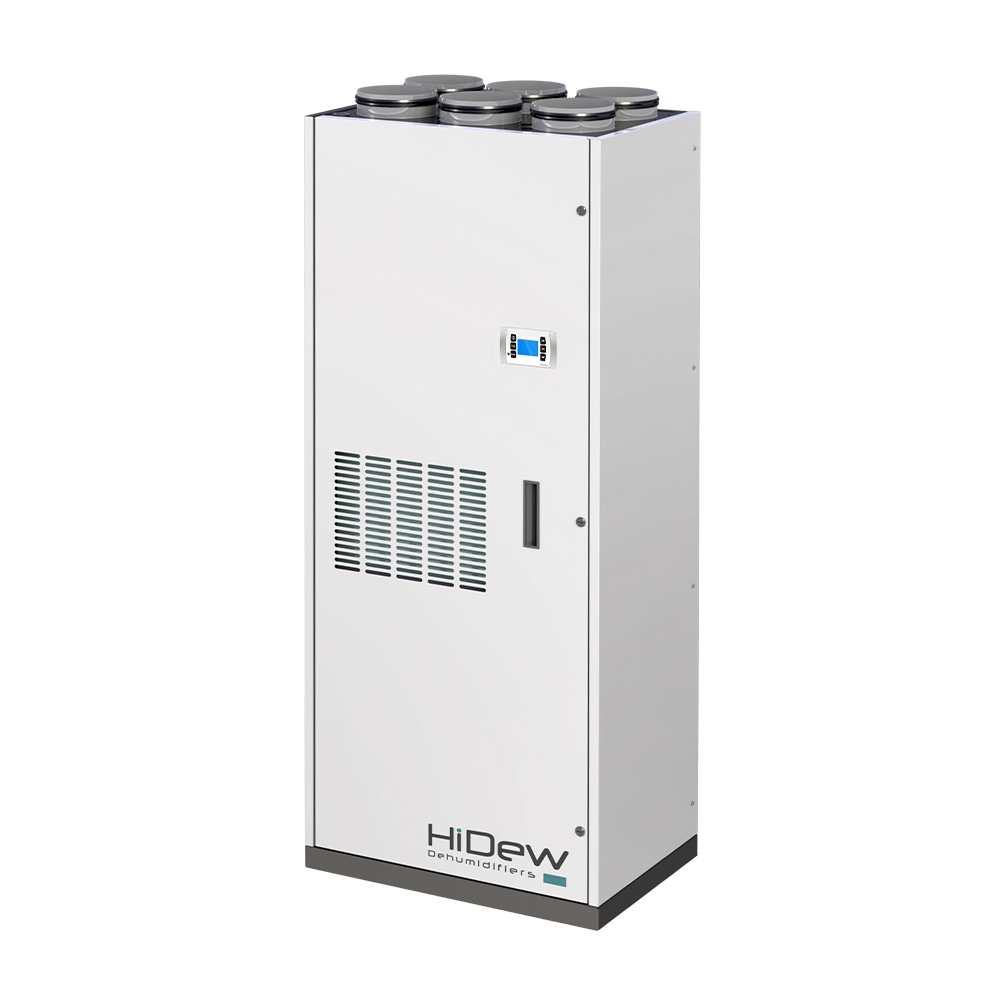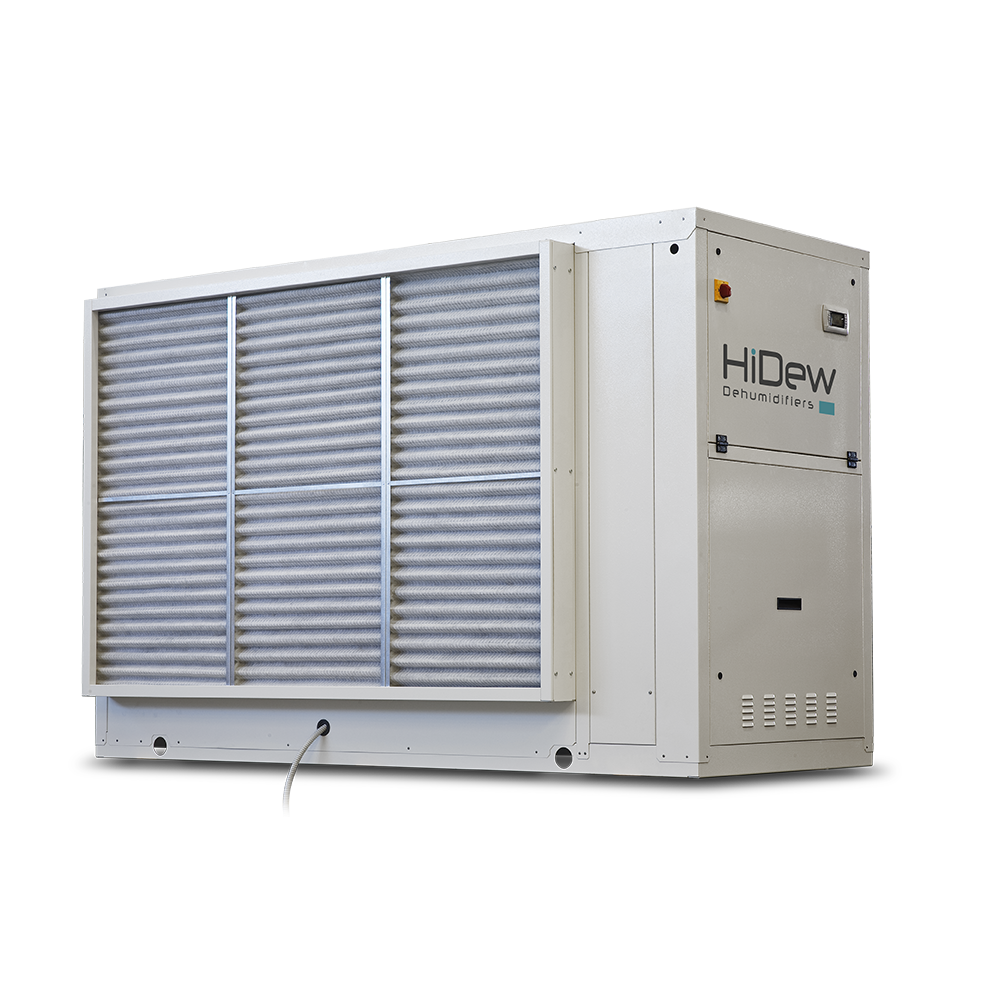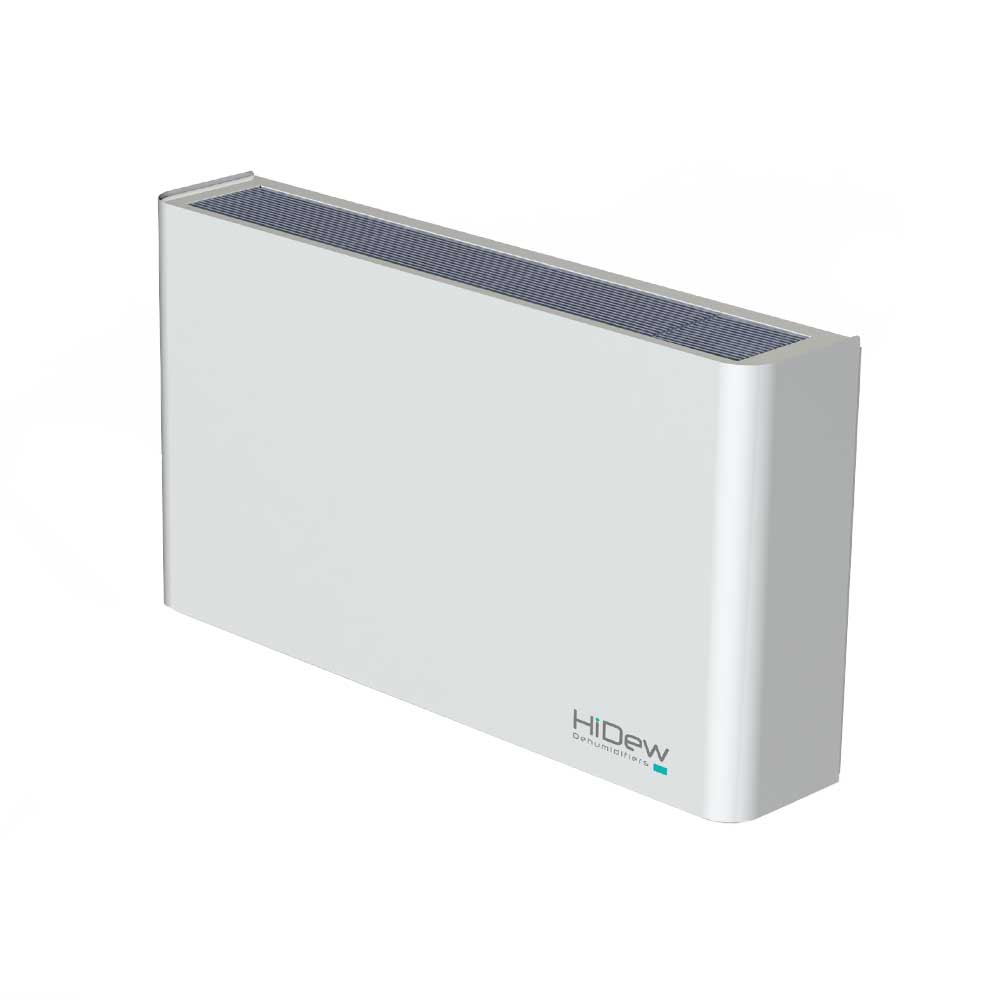Main Menu
Industrial Dehumidifiers
We stock a range of industrial dehumidifiers that are ideal for removing moisture from a variety of applications, such as cold storage facilities, swimming pools, wood storage, car storage, and more. A reliable dehumidification system is essential for preventing mould growth, damage to materials, product spoilage, and corrosion.
Whether you need a refrigerant dehumidifier that can handle high-temperature processes or a desiccant dehumidifier for sub-zero conditions, we have a variety of units that can control moisture effectively with high energy efficiency. Humidity control is a long-term investment, which is why we only source the best dehumidification systems from leading manufacturers.
If you are looking to replace an existing unit or a complete turnkey solution for a new project, get in touch today with one of our humidity control specialists for free expert advice.
The Cotes Modular Desiccant Dehumidifiers include a range of standardised off-the-shelf dehumidifiers with add-on modules to meet specific requirements.
Cotes Mobile Dehumidifiers are a selection of compact, lightweight dehumidifiers built for mobility, with a handle for easy lifting and transportation.
Cotes Cold Store Dehumidifiers are designed for preventing ice from forming in sub-zero storage installations.
Cotes Ultradry dehumidifiers are for larger industrial applications or manufacturing processes where precision, performance and stability are key.
Cotes Flexible Desiccant Dehumidifiers are the top-of-the-line Cotes dehumidifier range, with standard air volume capacities from 2,000 m3/hour to approx. 40,000 m3/hour.
The HiDew SPR / STR Refrigerant Dehumidifiers provide dehumidification, temperature control and air renewal, without dispersing internal heat outside.
The CCA Air Conditioner from HiDew features humidity control, heating and cooling in one system making it ideal for light commercial humidification and dehumidification.
HiDew Industrial Refrigerant Dehumidifiers are designed for use in high load environments requiring 24hrs/day operation.
The compact range of refrigerant dehumidifiers from HiDew come in multiple different options for installation and are completely autonomous at managing humidity.
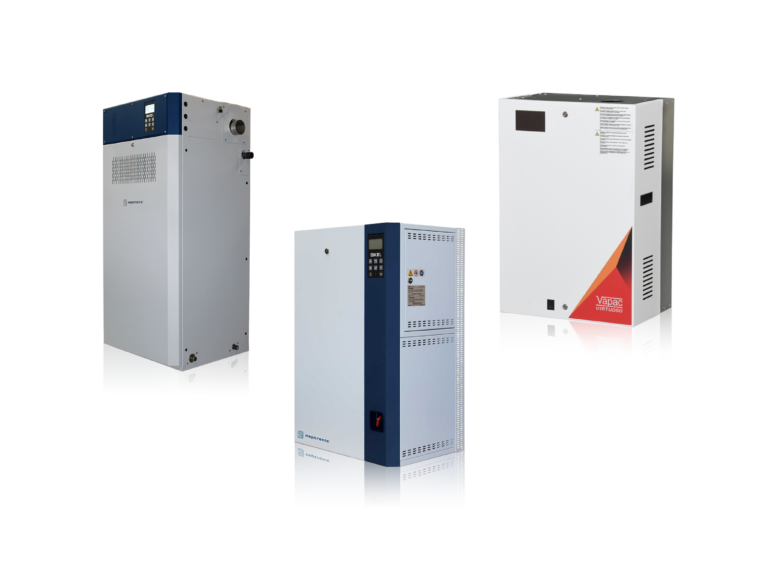 Industrial Humidifiers
Industrial Humidifiers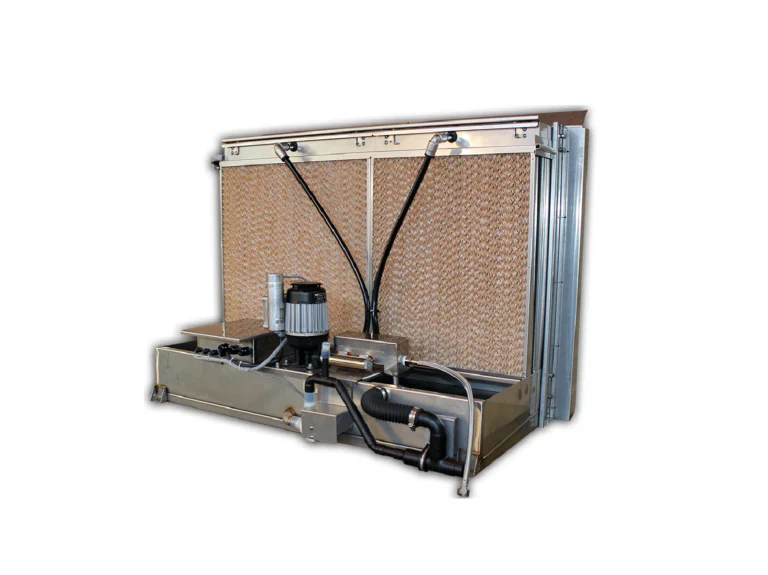 Cold Water Humidifiers
Cold Water Humidifiers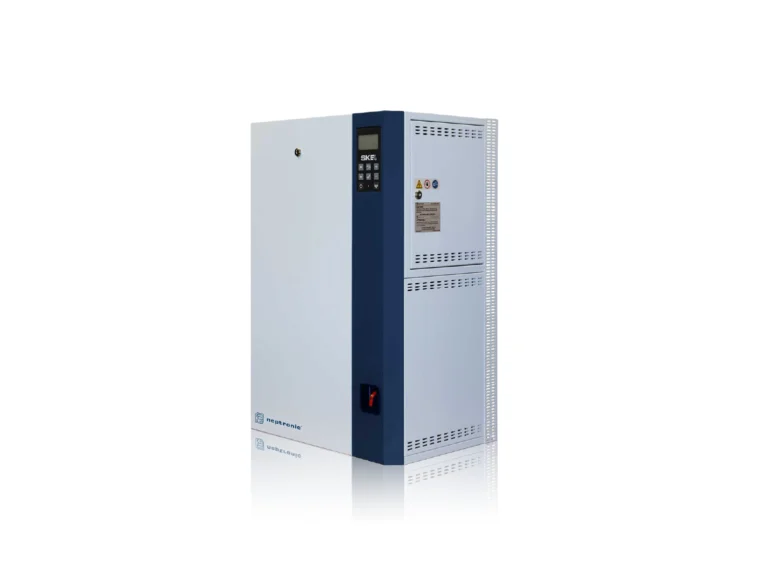 Steam Humidifiers
Steam Humidifiers Hot Yoga Humidifiers
Hot Yoga Humidifiers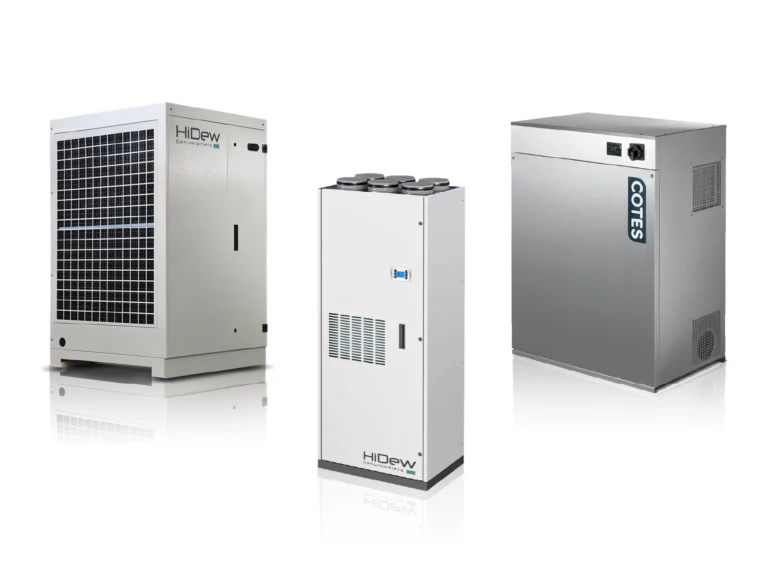 Industrial Dehumidifiers
Industrial Dehumidifiers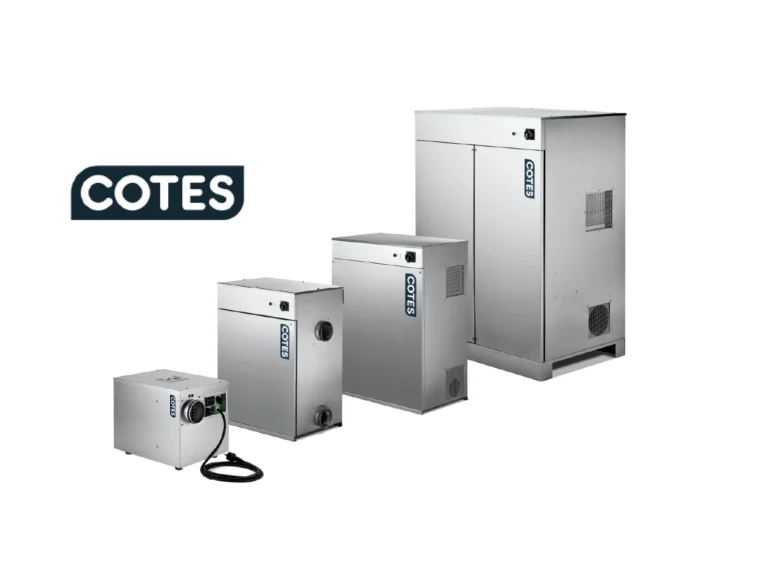 Desiccant Dehumidifiers
Desiccant Dehumidifiers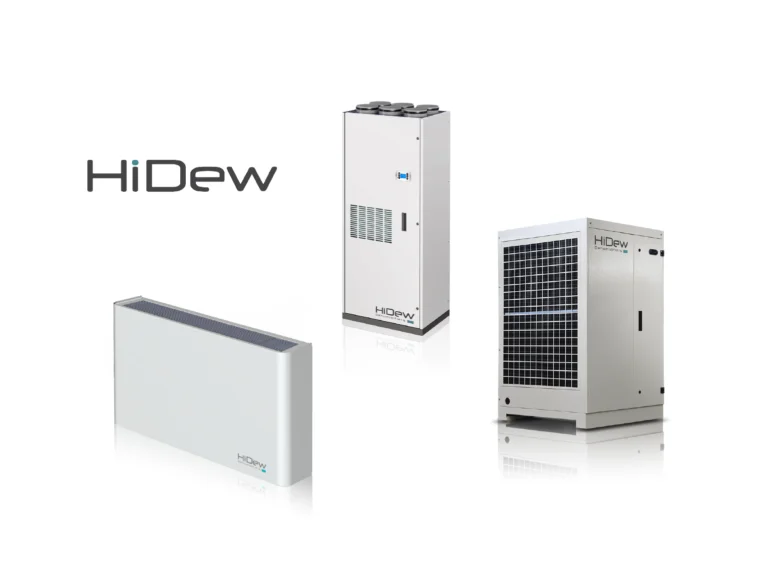 Refrigerant Dehumidifiers
Refrigerant Dehumidifiers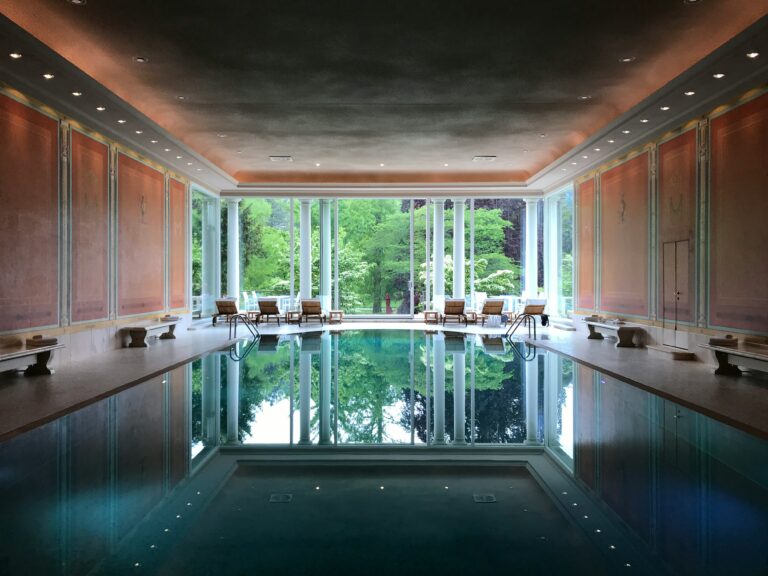 Swimming Pool Dehumidifiers
Swimming Pool Dehumidifiers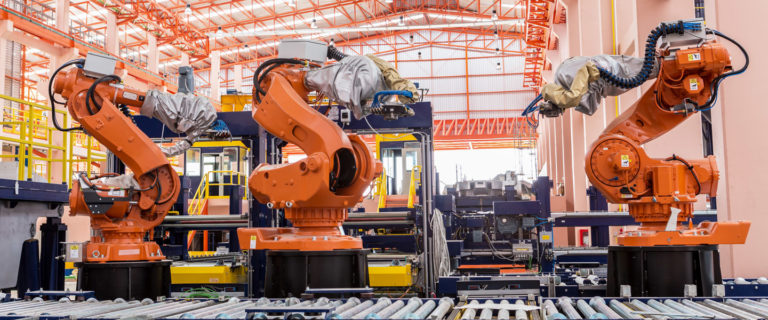 Industrial Products
Industrial Products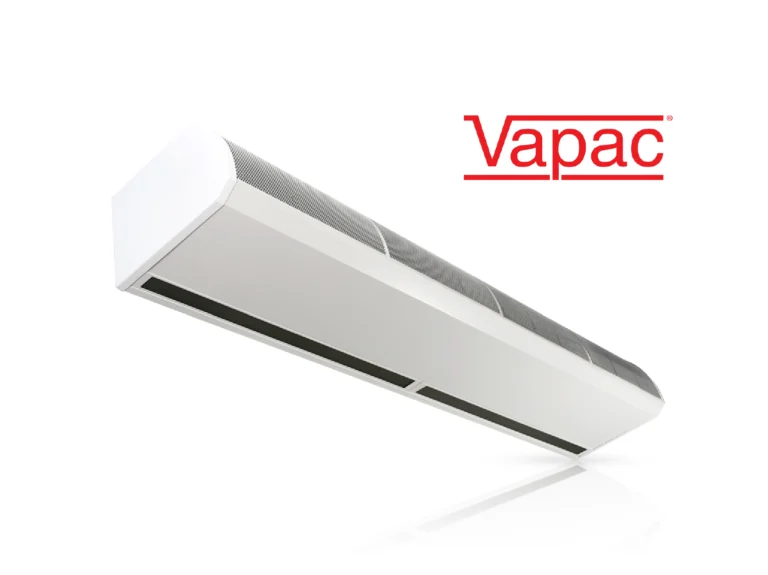 Air Curtains
Air Curtains- Climate Wizard Adiabatic Cooling
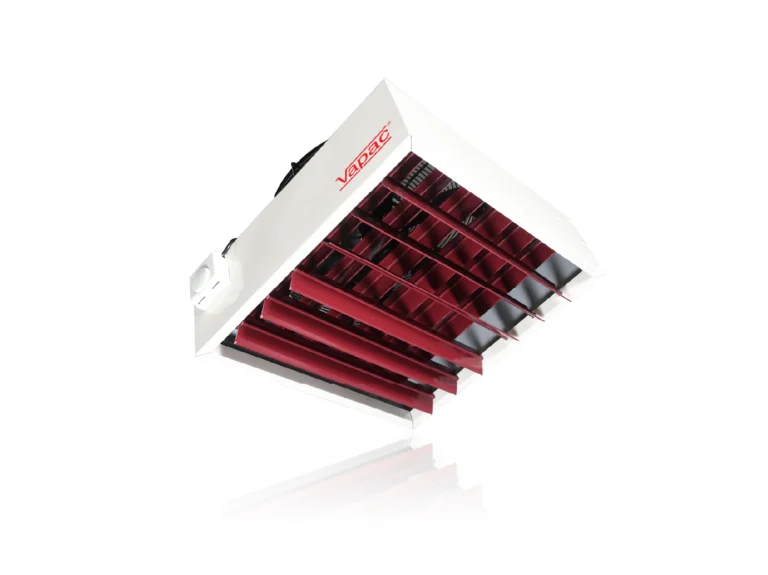 Destratification Fans
Destratification Fans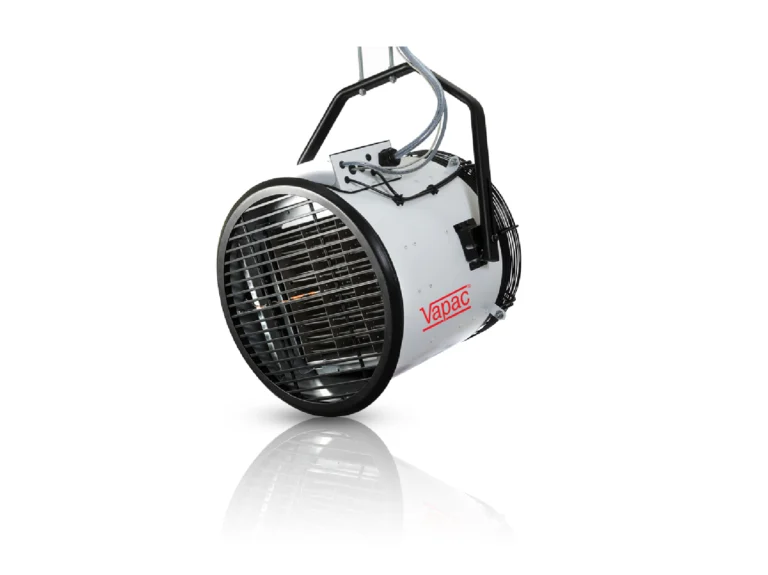 Electric Heaters
Electric Heaters Water Treatment
Water Treatment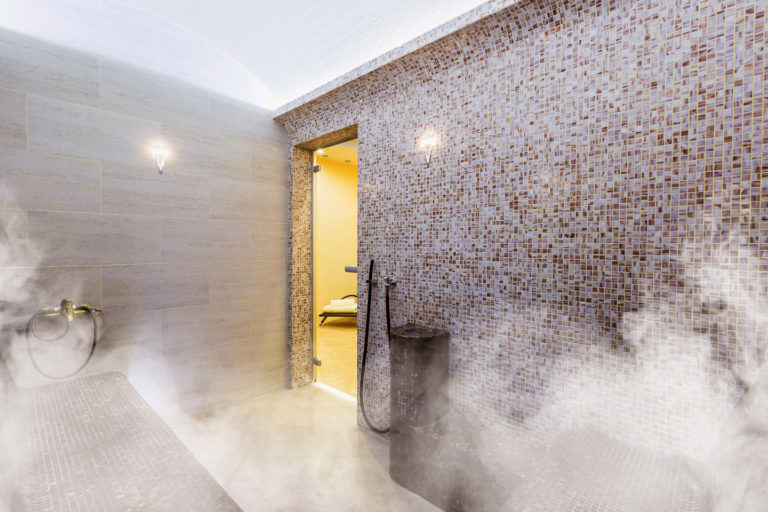 Steam Room Generators
Steam Room Generators
Guide to Choosing an Industrial Dehumidifier
With the vast range of industrial and commercial dehumidifiers on the market, choosing the right one for your business is often a long process.
Excess moisture is a problem for many organisations and solutions will differ from one business to another. For example, battery manufacturing facilities often need extremely low humidity levels of less than 1% RH, while other applications may need conditions of 40-60% RH to ensure that a process is within a pre specified humidity set point. Facility conditions, industry, function, and budget are some of the factors that can add to the complexity of selecting a suitable unit/s. Dehumidifiers can also be retrofitted to a facility, often to solve an existing problem in a facility.
In this guide, we will discuss:
- The different types of dehumidifiers commonly used in commercial and industrial premises
- Dehumidifier applications
- Factors to consider when sizing for a industrial dehumidifier
What is an Industrial or Commercial Dehumidifier?
Industrial dehumidifiers have been designed to remove moisture from large commercial or industrial spaces for long periods of time and are more robust than domestic dehumidifiers. Although they may function similarly to domestic dehumidifiers, the capacity, longevity, and performance are entirely different. Smaller domestic dehumidifiers, often seen in search engine results, are perfectly suitable for removing moisture in homes and small spaces but have limited use in a commercial setting.
Types of Industrial or Commercial Dehumidifiers
There are two main types of industrial dehumidifiers:
Refrigerant (condensing) dehumidifiers use a cold coil as part of the dehumidification process and are very effective in warm, humid areas. These units bring in air from the space and pass it over a cold coil which causes the water in the air to condense on the coil and is therefore removed from the air. This dry air is then put back into the space, lowering the in-room humidity. They are excellent for removing high levels of moisture, and can be very energy efficient, however, refrigerant units work best in temperatures above 15C and over 50% relative humidity.
Desiccant (adsorption) dehumidifiers contain adsorbent material (silica gel) that removes moisture from the air chemically. Desiccant units do not need warm temperatures to operate, unlike refrigerant units. They can work in both warm and cold environments, which is why they are an excellent solution for cold rooms and areas where there is no heating. If your room needs to be kept at below 50% relative humidity, selecting a dessicant unit is essential as a refrigerant based system will struggle to reach this set point, regardless of temperature.
For more information on refrigerant and desiccant dehumidifiers, see our in-depth article here on industrial dehumidifier technology.
Industrial Dehumidifier Applications
Cold Stores
Humid air entering cold stores through doorways can increase humidity levels, increasing the likelihood of condensation forming. Too much moisture can lead to damaged products, compromised packaging, mould growth, and potential slipping hazards for employees. Although air conditioning systems inside cold room AHU systems can remove moisture to some degree, it can sometimes not be enough to prevent these issues. This is where desiccant dehumidifiers can work well as they can remove moisture in very low temperatures, down to well below freezing if needed.
Swimming Pools and Spas
The warm humid environment of spas and swimming pools make it the perfect breeding ground for bacteria and mould growth due to high humidity and condensation building up on surfaces. Not only does this affect the health and wellbeing of visitors but it can also increase the frequency and cost of maintenance. A refrigerant dehumidifier is best suited for swimming pool and spa dehumidification, due to the higher temperature and moisture levels present in this type of environment, which can often reach higher than 90% RH.
Classic Car Storage
Classic cars are extremely prone to the effects of fluctuating humidity and temperature levels in warehouses and garages; and long-term storage in these conditions can cause serious corrosion of iron car parts. The initial reaction would be to heat the storage space, which can reduce the humidity during the colder months. But this often results in high energy costs (often up to 10x more than a dessicant dehumidifier), and it does not address the humidity levels during the summer months. Heating a space also does not remove moisture, instead warming the air to reduce the relative humidity as a be product of the heating. This approach is also not controllable so you will not have control of the humidity in the space, which is critical in this application. The combat this problem, a desiccant dehumidifier is recommended to operate year-round and in all weather conditions.
For more examples of humidity control use cases, see the industries section or the knowledge hub on our website where you can find additional case studies and information.
Sizing an Industrial or Commercial Dehumidifier
This is not an exhaustive list and will vary depending on the industry and specifications, but some important points to consider when sizing for an industrial dehumidifier include:
- The type of dehumidifier i.e. refrigerant or desiccant
- The size of the facility or dimensions of the area/location
- Room temperature and dew point
- The target relative humidity
- Conditions of the location and existing equipment
- Energy usage and requirements
- Internal moisture and people load
- Doors and windows
- Installation location i.e. in-duct, wall mounted, ceiling mounted, free-standing etc.
Are you looking for more advice on industrial dehumidification systems? Then call one of our humidity control experts today on 01372 571 200 or send us a message using our contact form.
